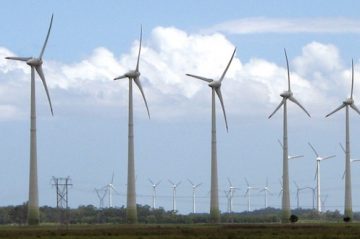 Three exceptional students with ambitions to translate their research to society have been selected to receive the Frank and Gordon Forward Commercialization Fellowship for 2023. The award will help them realize these ambitions by supporting them in developing their technology to the point where it can attract seed financing. Below we provide brief profiles of the recipients.
Three exceptional students with ambitions to translate their research to society have been selected to receive the Frank and Gordon Forward Commercialization Fellowship for 2023. The award will help them realize these ambitions by supporting them in developing their technology to the point where it can attract seed financing. Below we provide brief profiles of the recipients.
Bahar Iranpour is a doctoral student in Electrical and Computer Engineering (ECE), with a focus on improving the performance of rechargeable manganese-based rechargeable zinc-ion batteries and their storage mechanisms, and lowering their cost. She is thinking big, hoping her battery innovations will make large-scale grid storage for rechargeable energy systems such as solar and wind feasible. Bahar has already made significant strides in producing a better rechargeable battery, having developed a low-cost prototype with a tenfold increase in charging cycles (up to 1000 cycles), with no significant gas emissions, and that uses widely available materials already used in alkaline batteries. In her master’s work, Bahar worked on artificial photosynthesis, then left academia to work successfully in the fashion industry for 6 years. When she returned to Vancouver, she launched a startup with help from e@UBC programming, that used AI to improve the online fashion shopping experience. In the program, she reconnected with her former supervisor Dr. John Madden (ECE), and became excited once more about graduate research. If her battery innovations can be successfully scaled up, it will have a huge impact in advancing green energy.
Negin Farivar is a PhD student in the Department of Experimental Medicine. She has always been passionate about pursuing research that spans disciplines. Her graduate research integrates engineering and biology, and has produced a new form of photothermal therapy for cancer based on high-power pulse laser beams that deliver lethal heat shocks to the tumor. In a second project, Negin developed an AI pattern-recognition algorithm that can transform smartphones into a powerful cell analytics tool box. In February 2022, this latter work became the basis for the HATCH company SnapCyte Solutions Inc., which benefited from the Lab2Launch program offered by entrepreneurship@UBC (e@UBC), and is now in the HATCH Venture Builder in ICICS, with Negin as CTO. SnapCyte offers an AI-based mobile application that can automatically determine cell proliferation from images acquired using a smartphone attached to a lab microscope, replacing a time-consuming, expensive conventional process.
Justin Wyss is a PhD candidate in Biomedical Engineering, focused on developing prevention and rehabilitation technologies. Individuals who are immobilized due to spinal cord injury or age, or who are recovering from a procedure in hospital, are highly susceptible to pressure ulcers, which can have tragic effects due to spread of infection. These pressure injuries affect as many as 3 million people in North America. To address this problem, Justin has developed a flexible, stretchable sensor array that conforms to the patient and can measure pressure accurately over long periods. The technology employs spectroscopy to determine blood oxygenation as a function of pressure, with the aim of warning patients to move, or even helping them move, to alleviate the pressure. He is collaborating with the Praxis Spinal Cord Institute and the G.F. Strong Rehabilitation Centre, both in Vancouver, to learn from both potential users and professionals in the area, in order to refine his technology and scale it up to cover a wheelchair seat. Justin’s desire to put this new technology into practice has taken him through three levels of programing at e@UBC, as well as various entrepreneurship support programs at Simon Fraser University. With the support of a Forward Fellowship, Justin can move that much closer to supporting the millions of elderly and immobile individuals who suffer from pressure sores.